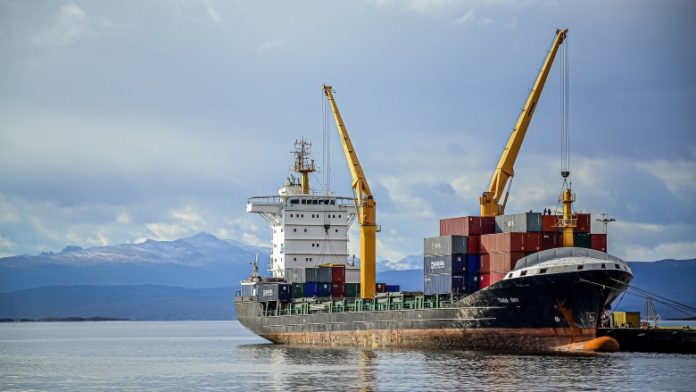On April 8th, 2024, FEPORT Secretary General and 27 high-level representatives of different parts of the mobility value chain and representatives of various transport modes have been invited by the European Commission President Ursula Von der Leyen, Commissioner Vălean and Commissioner Šefčovič to participate to the Clean Transition Dialogue on Clean Mobility.
The objective of the in-person meeting was to hear the views of the participants representing the port industry, shipyards, rail, aviation, car manufacturers, road transport, NGOs, recharging infrastructure and alternative fuels producers on how we can ensure the transition to clean transport, strengthen the business case for private investments in zero and low carbon mobility while maintaining and reinforcing the competitiveness of the EU transport sector.
The meeting was opened by the EU Commission’s President, Ms Ursula Von der Leyen and co-chaired by Commissioners Maroš Šefčovič and Adina Valean in presence of the staff of several directorates of the EU Commission (DG Grow, DG CLIMA, DG ENER, DG MOVE, DG Comp, DG RTD etc..) as well as institutions such as the EIB.
While all industry representatives reiterated their full support to the objectives of the Green Deal and the need to speed up the reduction of emissions in a context where signs of climate change are becoming more and more disruptive (droughts, floods and wildfires), many highlighted the need to also preserve the competitiveness of EU industries.
In her address, Ms Von der Leyen recognised the need for massive investments for the Sustainable and Smart Mobility Strategy which until 2030 will require at least EUR 100 billion per year for transport infrastructure alone. AFIR, the Alternative Fuels Infrastructure Regulation which sets binding targets for EU Member States in terms of deployment of the recharging and refuelling infrastructure which will require from Member States to mobilise at least EUR 1.3 billion that should be completed by more than EUR 6 billion private investment.
The objective according to the President of the EU Commission, is to deliver clean electricity to nearly 60 ports and over 50 airports.
The stability and reliability of supply chains was also a topic discussed during the dialogue. Green steel, batteries, other critical components, and raw materials are essential for the good functioning of many industries. Geopolitical tensions and the war in Ukraine have both amplified the awareness and revealed the urgency to bet on innovation and reduce dependency.
But what is also important is the necessity to give time for implementation of the newly adopted EU environmental framework.
FEPORT Secretary General, Ms Lamia Kerdjoudj like other participants underlined the contribution and resilience of the EU transport sector as well as its enabling role. She also highlighted the necessity to grant time for implementation and to preserve the competitiveness of EU ports.
“It is crucial that competitiveness remains high on the agenda. We need time to implement the adopted legislation and, if harmonisation at global level (IMO) is not possible, then we should not exclude adjusting our legislation to preserve the competitiveness of EU industries,” said Ms Kerdjoudj.
“We need to massively invest in infrastructure, to better connect ports to all transport modes, but also in energy transition and in digital networks. We need to ensure a real level playing field within the internal market and between ports when it comes to the financing of the energy transition.” added FEPORT Secretary General.
“Finally, we need to allow SMEs to have access to funding by simplifying application procedures to boost innovation and to intensify efforts to attract and retain talents. “concluded Ms Kerdjoudj
Source: Hellenic Shipping News





